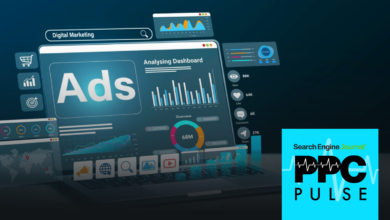Microsoft’s AI-Powered Windows Update: What’s New

▼ Summary
– Microsoft is adding new AI agents and Copilot features to Windows, including easier access through the taskbar and Start menu.
– Several new AI features, such as Click to Do and natural language file search, require a Copilot+ PC to function.
– Users can launch and interact with Microsoft 365 Copilot using voice commands or keyboard shortcuts for hands-free operation.
– Many Windows users expressed dissatisfaction, preferring Microsoft focus on improving OS reliability and stability over adding AI.
– Microsoft acknowledges user feedback on usability issues but continues to promote AI as central to Windows’ future development.
Microsoft continues to integrate advanced artificial intelligence capabilities directly into its Windows operating system, with a significant emphasis on Copilot and AI agents designed to enhance user productivity. These innovations, showcased during the recent Ignite event, include new agent interactions, writing assistance tools, and voice activation features. However, many of these functionalities are exclusive to Copilot+ PCs, raising questions about their accessibility and whether they align with what users truly expect from their operating system.
A central development is the introduction of AI agents accessible directly from the Windows taskbar. An Ask Copilot icon provides a streamlined way to activate Copilot and various AI helpers across applications and devices. Users can launch Microsoft 365 Copilot, troubleshooting agents, and even third-party agents directly from the taskbar or Start menu. Within the Copilot app, you can initiate these agents using the Tools menu or by typing the @ symbol, making AI assistance more integrated into daily workflows.
New AI features for Copilot are also rolling out in preview. Microsoft highlights a “simple, personalized, and multimodal experience,” though some capabilities remain limited to Copilot+ PCs. For instance, the Ask Microsoft 365 Copilot action allows users to select supported images or text and automatically send them to Copilot for analysis. In File Explorer, selecting a file enables you to ask the AI to summarize its contents or answer specific questions. You can even hover over documents to access different AI models. On trusted Microsoft 365 domains, natural language search helps locate both local and cloud-based files, while Writing Assistance offers built-in support for rewriting, editing, and proofreading, available offline on Copilot+ PCs.
Voice activation represents another leap forward. You can now launch and interact with Microsoft 365 Copilot by saying “Hey, Copilot” or pressing the Copilot key (or Win+C). This hands-free approach aims to let you access AI help without interrupting your current task or switching windows.
Accessibility also receives attention with new AI-driven features. Fluid Dictation, currently in preview for Windows 11 Copilot+ PCs, improves voice typing by making it faster and more accurate. The Windows Narrator and Magnifier tools now use high-definition AI voices for a more natural and pleasant reading of on-screen text and elements.
For those eager to test the latest developments, an experimental agentic features option is available to Windows 11 Insiders. This allows AI agents to utilize new agentic tools within the OS. To enable it, go to System, select AI Components, and toggle on “Experimental agentic features.” A dedicated Microsoft web page details what users can expect from these early capabilities.
Despite Microsoft’s enthusiasm, user reception has been mixed. Following a tweet from Microsoft president Pavan Davuluri celebrating Windows as an “agentic OS,” hundreds of critical responses flooded in. Many voiced frustration that the company should prioritize operating system reliability and stability over AI integrations. Commenters highlighted ongoing issues with bugs, performance, and usability, arguing that Windows should function as a clean, dependable platform for applications and files without unnecessary extras.
Davuluri acknowledged some concerns in a reply, noting team discussions focused on improving everyday usability and developer experiences. Yet, promotional efforts during Ignite continued to spotlight AI, with Davuluri reaffirming that “every Windows 11 PC becomes an AI PC” with Copilot at its core, a statement that again drew considerable negative feedback.
The underlying tension suggests a disconnect between Microsoft’s AI ambitions and user priorities. While AI tools offer clear benefits when used thoughtfully, many feel the company’s aggressive push overlooks fundamental needs for a leaner, more reliable OS. Fixing existing issues with Windows may be what users want most, creating a foundation upon which future AI enhancements could more successfully build.
(Source: ZDNET)





